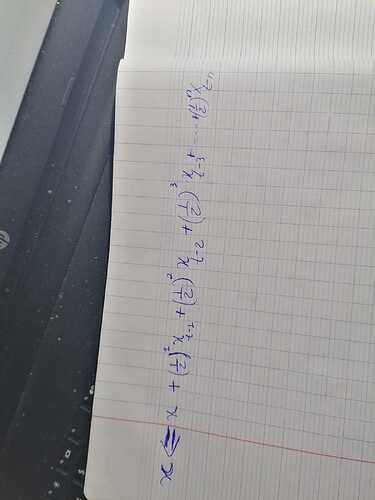MoLo
July 25, 2020, 12:32am
1
Hello.
I have a very important question. I wanna sum data with previous one times a parameter (1/2)^i
A B2)4 + (1/2)^2 2] 6 + (1/2)^2 *4 + (1/2)^3 *2]
And so on.
I have 366 observations in the columns.
Thank you in advance.
Merci encore
suppressPackageStartupMessages(library(dplyr))
mtcars %>% select(mpg) %>% mutate(lagged = mpg * (0.5*row_number() * lag(mpg)))
#> mpg lagged
#> 1 21.0 NA
#> 2 21.0 441.000
#> 3 22.8 718.200
#> 4 21.4 975.840
#> 5 18.7 1000.450
#> 6 18.1 1015.410
#> 7 14.3 905.905
#> 8 24.4 1395.680
#> 9 22.8 2503.440
#> 10 19.2 2188.800
#> 11 17.8 1879.680
#> 12 16.4 1751.520
#> 13 17.3 1844.180
#> 14 15.2 1840.720
#> 15 10.4 1185.600
#> 16 10.4 865.280
#> 17 14.7 1299.480
#> 18 32.4 4286.520
#> 19 30.4 9357.120
#> 20 33.9 10305.600
#> 21 21.5 7652.925
#> 22 15.5 3665.750
#> 23 15.2 2709.400
#> 24 13.3 2425.920
#> 25 19.2 3192.000
#> 26 27.3 6814.080
#> 27 26.0 9582.300
#> 28 30.4 11065.600
#> 29 15.8 6964.640
#> 30 19.7 4668.900
#> 31 15.0 4580.250
#> 32 21.4 5136.000
Created on 2020-07-24 by the reprex package (v0.3.0)
1 Like
MoLo
July 25, 2020, 8:38am
3
Hello.
Let us consider your exemple, Every "lagged" value must be exactly the mpg + the half of the previous "lagged".
The first lagged should be 21
The fourth one should be 21.4 added to half of 36.75 = 39.775
So, how would you change
lagged = mpg * (0.5*row_number() * lag(mpg))
MoLo
July 25, 2020, 7:35pm
6
the thing is,
MoLo
July 25, 2020, 7:39pm
7
this is the mathematical expression
How would you combine sum, lag and row_number functions to add the value of the first row of column X through the current row of column Y?
MoLo
July 25, 2020, 10:59pm
9
Right, the first row X=YX_1 X_2 +(1/2)^2 * X_1
And so on
MoLo
July 25, 2020, 11:02pm
10
And also Y_4=X_4 + (1/2)^1 X_3 + (1/2)^2 X_2 + (1/2)^3 * X_1
MoLo
July 25, 2020, 11:05pm
11
Another way we can do it,
Y_1 =X_1Y_1 Y_2
X_2 is not based on any previous value, but is given by the user?
MoLo
July 26, 2020, 6:47am
13
We already have all the X_i
MoLo
July 26, 2020, 6:50am
14
Personally, I have data X_1 to X_366
MoLo
July 26, 2020, 10:05am
16
As I told you, I have 366 observations
Y_1 =X_1Y_1 Y_2
options(scipen=999)
sum_nextx <- function(xvec,i){
results <- vector(length=length(xvec))
y<-0
for (index in seq_along(results)) {
y <- xvec[index] + y * (1/2) ^ i
results[index] <- y
cat(index, "\t", round(y,5),"\n")
}
results
}
r<- sum_nextx((1:10),.5)
MoLo
July 26, 2020, 8:54pm
18
Good Morning Nirgrahamuk
sorry, it does not work.DF.NS$Lunenburg
MoLo
July 26, 2020, 9:18pm
19
nirgrahamuk:
options(scipen=999)
sum_nextx <- function(xvec,i){
results <- vector(length=length(xvec))
y<-0
for (index in seq_along(results)) {
y <- xvec[index] + y * (1/2) ^ i
results[index] <- y
cat(index, "\t", round(y,5),"\n")
}
results
}
r<- sum_nextx((1:10),.5)
can you please explain a little?
MoLo
July 26, 2020, 10:22pm
20
@nirgrahamuk
I already have a column of data (Lunenburg) in the dataframe (DF):
for each observation in Lunenburg (X_i) I would like to get the response (Y_i) as defined below.
I tried your code but it does not work.

